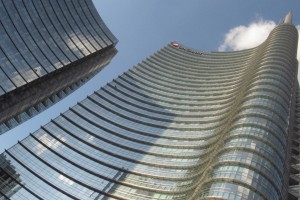Transform 2019 cheer tees up UniCredit last hurrah
UniCredit took advantage of a positive response to the first year of its “Transform 2019” plan by launching a EUR1bn perpetual non-call June 2025 AT1 on 13 December, pre-empting potential first quarter pitfalls, and the deal overcame year-end price sensitivity to ultimately perform in the secondary market.
Market participants highlighted a “striking” 3.875% difference between the 5.375% coupon on the new issue and the 9.25% paid by UniCredit on a club-style EUR500m perpetual non-call 5.5 Additional Tier 1 (AT1) issued the day after the Transform 2019 was unveiled in December 2016.
“In the last 12 months there has been a considerable tightening of almost 400bp on our AT1 instruments, reflecting the positive repricing on the name and the strong investors’ appetite,” said UniCredit.
It noted that only four other European issuers have printed AT1 with coupons at or below the 5.375% it achieved.
The day before launch (12 December), UniCredit held a capital markets day where CEO Jean Pierre Mustier declared its strategic plan to be on track. An anticipated 150bp hit to its 2019 fully-loaded CET1 ratio resulting from the incorporation of incoming regulatory requirements was eclipsed by positive results and targets that reinforced a successful year including a record EUR13bn share sale in February.
A 50bp lowering of the bank’s SREP Pillar 2 requirement by the European Central Bank from 250bp to 200bp was welcomed with respect to its AT1 in increasing the MDA buffer. The new issue meanwhile takes UniCredit to just EUR750m short of filling its EUR3.5bn 1.5% AT1 bucket, while scarcity value in the name was further enhanced by news the Italian national champion’s TLAC funding plan had been cut EUR9bn.
Bookrunners Crédit Agricole CIB, Deutsche, HSBC, Morgan Stanley and UniCredit went out with initial price thoughts of the 5.625% area for the benchmark perpetual non-call June 2025 deal, then revised guidance to 5.375%, plus or minus 12.5bp will price in range on the back of a EUR2.25bn book. The coupon was ultimately fixed in the middle of guidance with orders above EUR1.6bn, indicating a high degree of price sensitivity, and the size was fixed at EUR1bn.
Playing into the price sensitivity upon the move from IPTs to re-offer was the difference in compensation for investors for the ultimately lower reset spread. UniCredit 6.625% perpetual non-call June 2023s issued in May were quoted at an i-spread of 452bp and have a reset spread of 639bp. At the new issue’s IPTs of 5.625%, the reset spread worked out at 509.5bp, meaning investors would get a premium of 57.5bp for a reset spread 129.5bp lower, or 44bp incremental premium per 100bp difference in reset spread. At the ultimate pricing of 5.375%, this reset back-end adjustment fell to 28bp.
UniCredit described the new issue premium as minimal, “despite the year-end thin liquidity and the significant intra-day volatility on Italian risk”. BTPs suffered on the day the AT1 was launched after reports in the Italian press of elections being firmed up for early March 2018, while – despite 200 accounts being involved in the trade – investor participation was seen as somewhat restricted to those still willing to take on risk going into year-end.
“January will be very busy and pressure on spreads and yields may increase, particularly in Italy if you also discount the perspective of an election in March 2018,” said Vincent Hoarau, head of FIG syndicate at Crédit Agricole CIB. “There was a trade-off against the sub-optimal liquidity situation and year-end timing, but clearly it was better to be pre-emptive and take advantage of their strong announcements and the exceptional conditions, and UniCredit came away with an outstanding result.
“This was a trade for those who understood and bought the scarcity value element,” he added. “If you want to play the compression in size in 2018, this was a unique opportunity.”
After trading slightly below par in the three post-launch sessions, the deal rallied to trade at 100.25, bid, in the pre-Christmas week on the back of a strong pick-up in demand, noted Hoarau.
Funds took 73% of the new issue, banks 22%, insurance companies 4%, and others 1%. The UK and Ireland were allocated 30%, Italy 23%, Switzerland 12%, the US 10%, France 6%, Asia ex-Japan 6%, the Benelux 4%, Iberia 3%, Germany and Austria 2%, the Nordics 2%, and others 2%.
The AT1 is rated B+ by Fitch.

